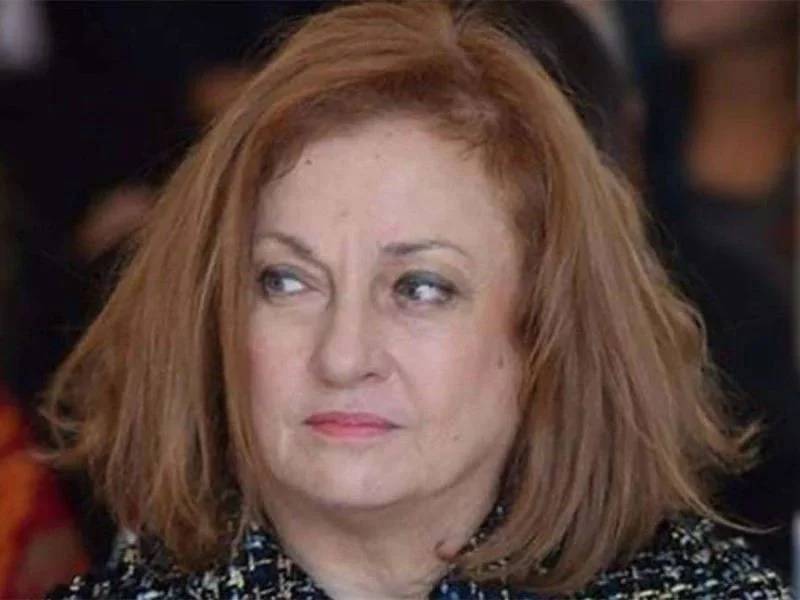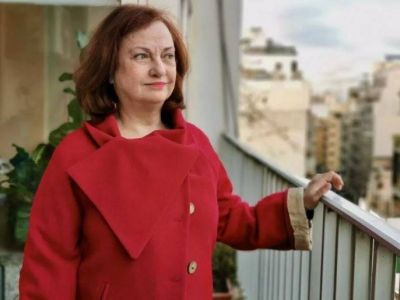
The Public Prosecutor at the Mount Lebanon Court of Appeal, Ghada Aoun. (Credit: NNA)
The disciplinary council of judges on Thursday dismissed the Public Prosecutor at the Mount Lebanon Court of Appeal Ghada Aoun, who has been investigating several cases of suspected corruption charges involving a number of political and financial officials.
The decision to remove the judge from her position has not been implemented yet, as another ruling on her is pending. However, there are concerns about the potential consequences of this decision on the prosecution’s proceedings.
As the court of the second instance is not bound by a time limit to pronounce its verdict, Aoun could, until further notice, remain at her post in all legality.
On Sunday, Aoun took to Twitter and listed the various cases she is currently working on, which include the file of Banque du Liban Governor Riad Salameh, the transfer abroad of $8 billion made by several banks, subsidized housing loans (implicating caretaker Prime Minister Najib Mikati) and the tainted fuel case involving businessmen Raymond and Teddy Rahme.
The disciplinary council’s decision to remove her from her position will not, for the moment, affect her investigation of these cases or any other case she might take on.
Mawlawi’s contentious decision
It is worth noting that in February, caretaker Interior Minister Bassam Mawlawi instructed, at Mikati’s request, the country’s law enforcement officers to disregard any orders issued by Judge Aoun.
Mikati had made this request on the grounds that the prosecutor is the subject of appeals filed by bank representatives of which she refused to be notified. Aoun retaliated by accusing the premier of meddling in judicial affairs.
A source from the Mount Lebanon Court of Appeal who spoke to L’Orient-Le Jour on condition of anonymity said some parties have appealed Mawlawi’s decision before the State Shura Council, deeming it as “an infringement of the principle of checks and balances.”
According to the same source, the Internal Security Forces (ISF) are obliged to follow the judiciary’s instructions, as opposed to the interior minister’s whose role is merely administrative.
Otherwise, the ISF would be liable to prosecution, the source said, stressing that State Security and various other Lebanese police forces continue to cooperate with Judge Aoun.
The source explained that, in any case, Aoun often resorts to bailiffs [for the execution of minor decisions], but does not have the means to carry out major decisions, such as “arresting Riad Salameh.”
A simple majority would suffice
The next crucial stage in deciding whether Judge Aoun will be able to proceed with her cases is the ruling of the High Disciplinary Council of Magistrates.
“As per the judicial justice law, all members of the High Disciplinary Council are obligated to attend the hearings and participate in the deliberations; otherwise, they could be charged with a denial of justice,” lawyer Said Malek explained to L’Orient-Le Jour.
However, he clarified that the High Disciplinary Council of Magistrates is not required to reach a unanimous decision; a simple majority would suffice.
The presence of all members of the High Disciplinary Council of Magistrates, including its president, Souheil Abboud — who is also the president of the Higher Judicial Council — and council members Afif Hakim, Habib Mezher, Dany Chebli and Mireille Haddad, is required during the sessions. They are tasked with deciding whether to accept or reject Judge Aoun’s appeal.
The verdict of the council, whether reached by a majority or unanimously, will determine whether the prosecutor will continue her investigations or be definitively removed from her post.
A judicial source told L’Orient-Le Jour the disciplinary council cited Judge Aoun's refusal to be notified of the judicial appeals against her and her social media interventions as reasons for her removal.
This article was originally published in French in L'Orient-Le Jour. Translation by Sahar Ghoussoub.
